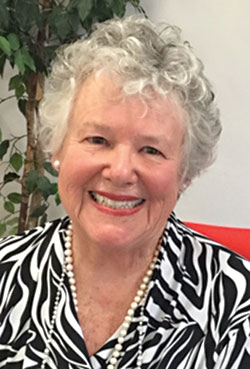
by Mary Wakefield Buxton –
URBANNA — The greatest inheritance parents can pass on to their children is a sense of humor. Life is full of troubles and if we pass on ability to laugh a little at the bizarre and hideous snags we meet along the way, it will help the next generation cope more than any other asset. The sooner one learns you might as well laugh than cry, the better.
Mother had a great sense of humor. One of Mother’s funniest remarks was how she felt about going to the doctor. “Stay away from doctors,” she would say with a look of alarm. To this, as if on cue, we would always ask her why. Her never changing response was …“They will only tell you the jig’s up!”
We laughed but we noticed Mother followed her own advice and stayed away from doctors, at least until she turned 80 and then she had little choice in the matter.
Later, I found the expression “the jig’s up,” a jig referring to a Scottish dance, in one of Shakespeare’s plays. Mother’s generation had read Shakespeare and had many of his rich cliches in command that they throughout their lifetimes used to spice up conversation.
But getting back to the subject of the crisis of aging, when one reaches a certain age, say in the 80s, the simple act of going to the doctor when you don’t feel particularly well can be downright scary. One never knows what the state of not feeling well might turn out to be after “tests.”
Of course, we all know after age 75, our bodily organs tend to give out and this is bound to cause trouble. But as Mother seemed to realize even at a much younger age, who wants to hear the bad news?
Someone I know, well into his 80s, went in one day recently to see his doctor only to discover his heartbeat had dropped to 37 beats a minute. That’s a dangerously low level and such a low count will negatively affect other organs such as the kidney will stop functioning. At 30 beats a minute, a person passes out. So, he really wasn’t feeling well.
I’m sitting here today in front of my keyboard remembering how fast everything happened after that visit. The doctor administered an EKG, saw the dire results and sent him to emergency at Riverside Walter Reed Hospital. After further tests, it was decided he was in immediate need of a pacemaker.
A pacemaker is a battery-operated device that is inserted into a cavity in one’s chest with wires attached to the heart. It regulates heartbeat, hopefully guaranteeing a steady heartbeat for many more years.
He was transferred to Riverside Hospital in Newport News and after additional tests and consultations with two cardiologists he was scheduled for a pacemaker insertion the next day. After another few days he came home. It was over. He was well again, the new device inserted into his chest, and the crisis was behind him.
I think back at that time and shudder. When your heart starts to give out you are most fortunate if you happen to be in your doctor’s office. It strikes me when this happens you either get a pacemaker in time or … you die.
There’s no time to think. No time to tell your doctor, “Well, let me sleep on my decision.”
Or say, “I’m not sure I want something inserted into my chest.” Or say, “I don’t like the sound of being attached to some battery for the rest of my life.”
In the end you make a snap decision to do what the doctors tell you to do, pray that they know what they are doing and that the procedure will save your life.
Because when the heart goes, we all go.
I feel humbled and teary eyed at the memory of those frightening days when we turned over our total trust to our doctors. To think we were standing right on the edge of a moment when life as we know it was about to end. And then, almost as if someone waved a magic wand or pulled out a rabbit from a hat, life was returned.
Can we not be awfully grateful for our doctors — their knowledge, for the science and medicines that produced an option to go on living when the heart fails, and lastly, thankful our doctors and nurses are there to provide care when things turn really, really, and I do mean really, bad.
I know that having a sense of humor is essential in life but I am not yet able to see any comedy in this event. Perhaps the greatest inheritance we can pass on to our children is the simple ability for being grateful for whatever gifts that come our way in life.
In the meantime, thank you, Riverside team.
© 2022.


